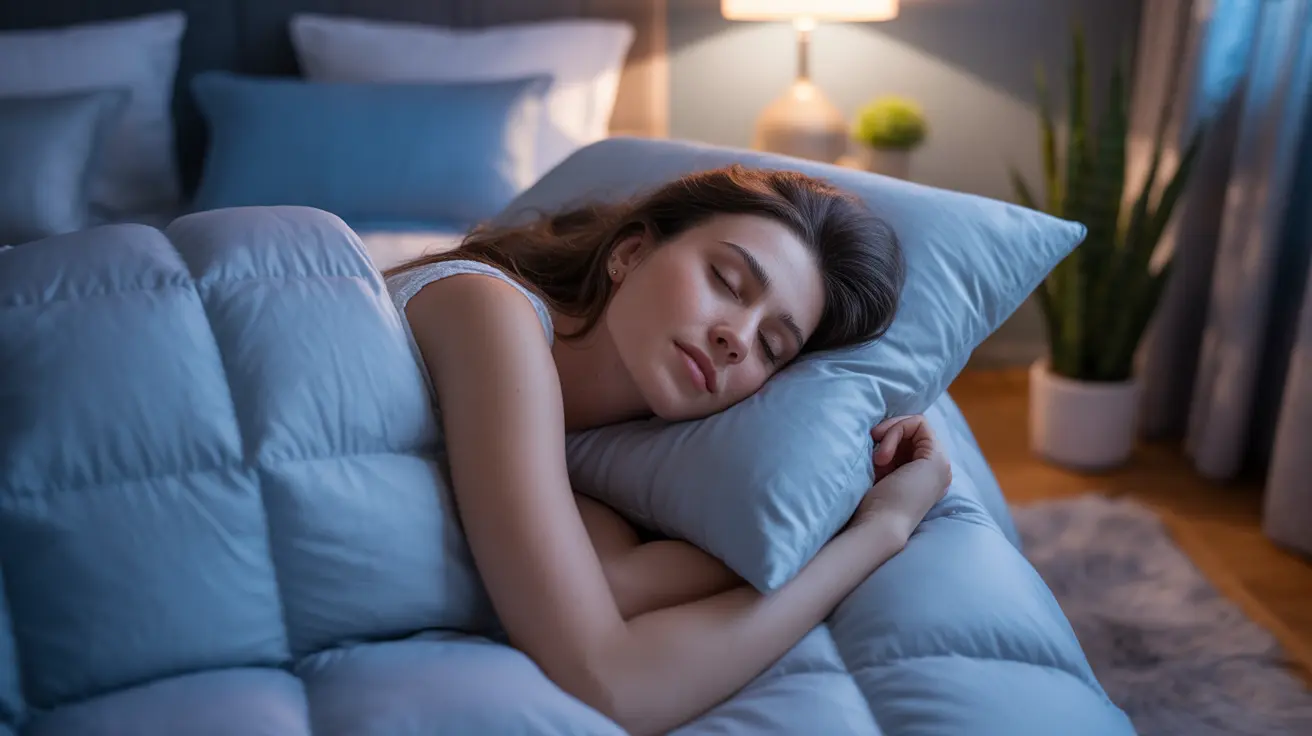If you find yourself tossing and turning at night, you're not alone. This common sleep issue affects millions of people and can significantly impact your quality of life. Understanding the root causes of sleep restlessness and learning effective solutions can help you achieve the restful sleep you deserve.
While occasional nighttime movement is normal, persistent tossing and turning can indicate underlying issues that need attention. Let's explore the causes, effects, and practical solutions to help you get better sleep.
Understanding the Science Behind Tossing and Turning
Sleep restlessness often occurs during lighter sleep stages when we're more easily disturbed. During these periods, various factors can trigger movement and prevent us from achieving deeper, more restorative sleep phases.
Our bodies naturally move during sleep to prevent pressure points and maintain circulation. However, excessive movement can disrupt our sleep cycles and prevent us from getting the quality rest we need.
Common Causes of Nighttime Restlessness
Physical Factors
Several physical conditions can contribute to tossing and turning at night:
- Muscle tension or pain
- Digestive issues
- Temperature discomfort
- Sleep apnea
- Restless legs syndrome
Psychological Factors
Mental health plays a crucial role in sleep quality. Common psychological causes include:
- Anxiety and racing thoughts
- Stress from work or personal life
- Depression
- Unresolved concerns or worries
Creating the Ideal Sleep Environment
Your sleep environment significantly impacts your ability to rest peacefully. Key factors to consider include:
- Maintaining a cool room temperature (65-68°F)
- Using comfortable, breathable bedding
- Minimizing noise and light disruptions
- Ensuring proper mattress support and comfort
Lifestyle Changes for Better Sleep
Making targeted lifestyle adjustments can dramatically reduce nighttime restlessness:
- Establishing a consistent sleep schedule
- Creating a relaxing bedtime routine
- Limiting screen time before bed
- Avoiding caffeine and heavy meals close to bedtime
- Regular exercise (but not too close to bedtime)
When to Seek Professional Help
Consider consulting a healthcare provider if you experience:
- Persistent sleep difficulties lasting more than a few weeks
- Daytime fatigue affecting your daily activities
- Signs of sleep apnea or other sleep disorders
- Anxiety or depression symptoms affecting your sleep
Frequently Asked Questions
What are the most common causes of tossing and turning at night?
The most common causes include stress, anxiety, uncomfortable sleep environment, poor sleep hygiene, caffeine consumption, and underlying health conditions like sleep apnea or restless legs syndrome.
How can anxiety and stress contribute to restless sleep and tossing and turning?
Anxiety and stress trigger the body's fight-or-flight response, increasing heart rate and mental activity. This heightened state of alertness makes it difficult to relax and achieve deep sleep, leading to increased movement and restlessness.
What lifestyle changes can help reduce tossing and turning and improve sleep quality?
Key lifestyle changes include maintaining a consistent sleep schedule, creating a relaxing bedtime routine, exercising regularly, limiting caffeine and screen time before bed, and ensuring your bedroom is cool, quiet, and dark.
When should I see a doctor about frequent tossing and turning during sleep?
Consult a doctor if sleep restlessness persists for several weeks, significantly impacts your daily functioning, or occurs alongside symptoms of sleep disorders or mental health concerns.
How does the sleep environment affect tossing and turning at night?
Your sleep environment directly influences sleep quality. Factors like room temperature, mattress comfort, noise levels, light exposure, and air quality can all contribute to nighttime restlessness. Optimizing these elements can significantly reduce tossing and turning.
Remember, quality sleep is essential for your overall health and well-being. If you're experiencing persistent sleep difficulties, don't hesitate to make necessary changes or seek professional guidance to improve your rest.




